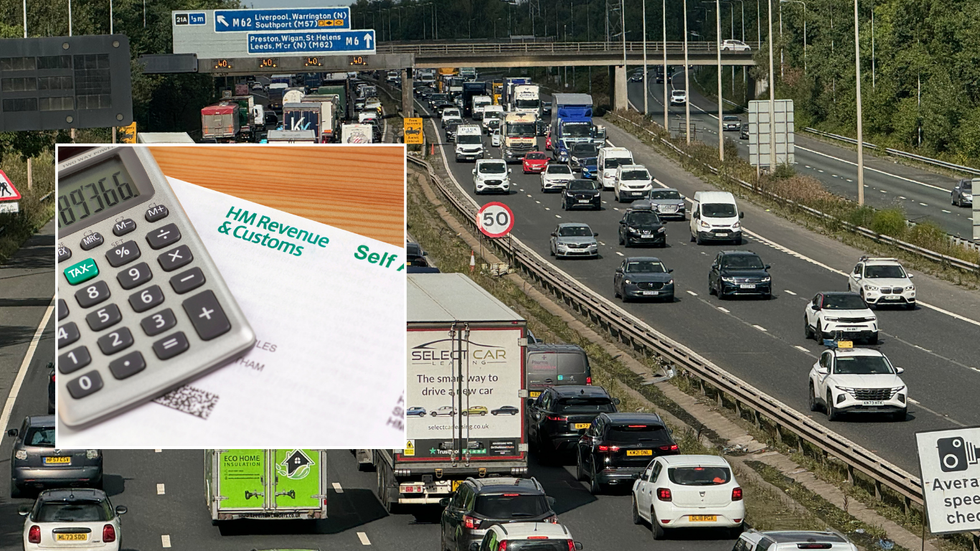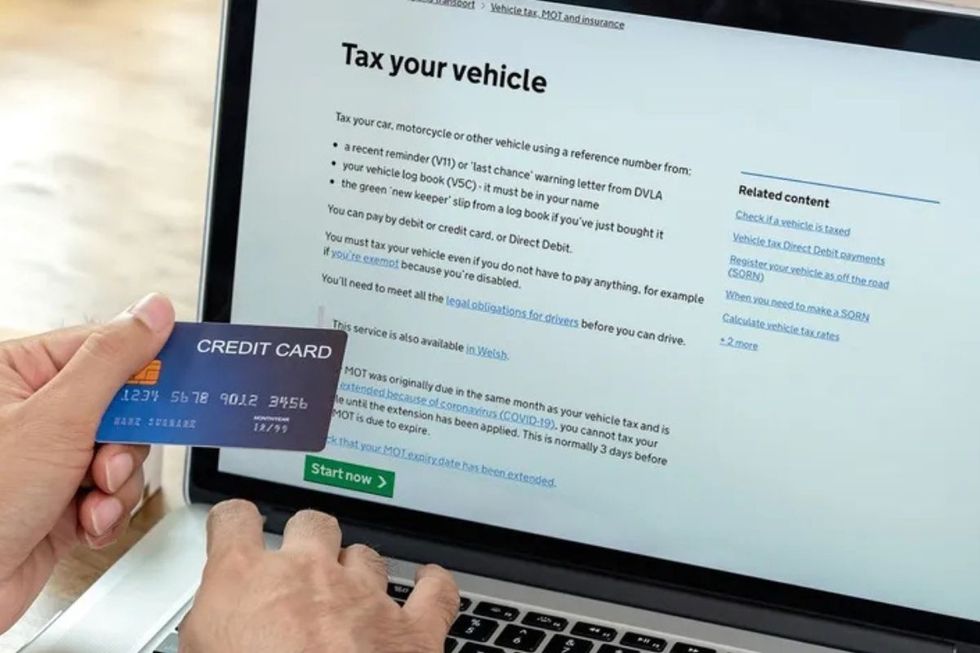WATCH: Major car tax changes could see motorists hit with enormous monthly costs
GB NEWS
The changes will impact business vehicles with lower emission cars paying less VAT
Don't Miss
Most Read
Trending on GB News
Drivers have been warned about new VAT road fuel charges coming into effect from May 1, which will impact businesses which use cars for work.
It comes after HMRC published the updated charges on April 16, giving businesses just two weeks to prepare for the changes.
The charges are used by businesses to account for private consumption of fuel in company vehicles, with higher polluting cars paying more.
The flat rate values apply to one individual, in connection with a specific vehicle, for the relevant accounting period, with these updated charges remaining in place until April 30, 2026.
Do you have a story you'd like to share? Get in touch by emailingmotoring@gbnews.uk

The updated charges will remain in place until April 30, 2026
PA/GETTY
The system simplifies the process of calculating VAT on fuel used for private journeys, including commuting to and from work.
But for employees, these charges can result in significant tax implications if not properly managed, HMRC warned.
The car fuel benefit charge is calculated based on the vehicle's CO2 emissions rating and is applied to the car fuel benefit multiplier. Businesses are required to report these charges on their VAT returns to comply with HMRC regulations.
Interestingly, the new charges show a notable decrease compared to the previous year's rates, with vehicles with CO2 emissions of 120 or less seeing the annual charge drop from £702 to £661.
For mid-range vehicles with emissions of 175, the annual charge fell from £1,752 to £1,652. Even vehicles with the highest emissions (225 or more) will see charges reduced from £2,454 to £2,314 annually.
Monthly charges follow the same pattern, with low emission vehicles now charged £54 in VAT instead of £58, and high-emission vehicles charged £192 instead of £203.
These reductions apply across all CO2 bands and accounting periods. For vehicles too old to have a CO2 emissions figure, drivers must identify the appropriate band based on engine size.
These classifications aim to ensure all vehicles can be appropriately categorised for VAT fuel charge calculations, regardless of age.
The new rates have represented a welcome reduction in costs compared to the 2024-25 period across all emissions bands.
According to tax firm Herbert Lewis Williams & Associates, the changes to the fuel scale rates continue to encourage the use of cars with low CO2 emissions.
The firm detailed: "The revalorisation of fuel scale charges is no longer part of the Budget process, and the tables are instead published by HMRC annually.
"Where the CO2 emission figure is not a multiple of five, the figure is rounded down to the next multiple of five to determine the level of the charge. For a bi-fuel vehicle which has two CO2 emissions figures, the lower of the two figures should be used. There are special rules for cars which are too old to have a CO2 emissions figure."
LATEST DEVELOPMENTS:
- Major car brand introduces battery health certificates for used electric cars marking industry first
- DVLA unveils list of banned number plates which could see drivers slapped with £1,000 penalty - 'Comply!'
- Local authorities caught breaching Clean Air Zone rules by using petrol-powered tools while fining millions

HMRC unveils new VAT charging rates every year for business vehicles
X/DVLAHMRC added: "You’ll need to work out the correct road fuel charge, based on your car’s CO2 emissions, and the length of your VAT accounting period. This will be either one, three, or 12 months."








